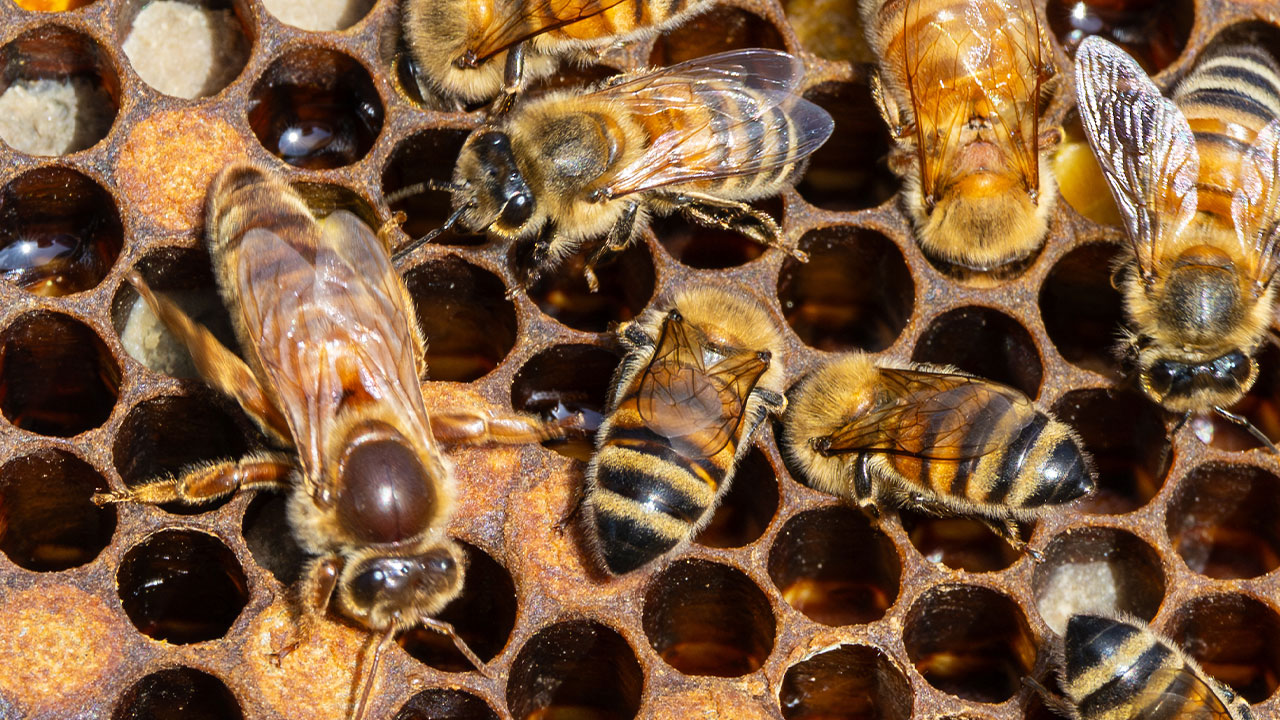content body
The buzz at the Auburn University Bee Center isn’t just about harvesting honey for the AU-BEES program. It’s also about groundbreaking research, immersive student experiences and impactful community outreach.
Recently elevated from a lab to a center by Auburn’s Board of Trustees, the Bee Center is leading the charge to reverse the global decline in the health of honey and native bees through innovation, collaboration and education.
“Creating the center recognizes the important contributions we have made towards understanding and improving bee health and beekeeping,” said Geoff Williams, associate professor in the College of Agriculture and the center’s director. “It positions us to move forward more effectively as a regional and national leader by streamlining faculty and resources dedicated to bees.”
Auburn already plays a commanding role in this work through its stewardship of the U.S. Beekeeping Survey — a vital national initiative that tracks honey bee colony losses. The data collected not only reveals critical trends but also directly informs policymakers and researchers, shaping agricultural practices and guiding research priorities.
With the latest survey revealing even greater colony losses among commercial beekeepers — driven in part by unusually high winter mortality — center researchers are stepping up with data-driven solutions and practical support to help the industry respond.
Globally, the center is also leading efforts to monitor and manage the spread of Tropilaelaps mercedesae, a parasitic mite affecting honey bee populations across Asia and Eastern Europe.
“By leading efforts to understand and manage this mite, we are preparing U.S. beekeepers for its potential arrival, demonstrating our commitment to proactive and preventive measures,” Williams said.
Teamwork makes it happen
Williams emphasizes that collaborations with stakeholders and scientific partners are essential to the center’s ability to conduct impactful research that promotes the health of both honey bees and native bees.
Facing the ongoing threat of another parasitic mite, Varroa destructor, Auburn has joined forces with researchers from across the U.S. and Canada to identify new tools and improve application methods for controlling the pest.
Partnerships with the USDA ARS Stoneville Pollinator Health Research Unit have led to the deployment of new mechanisms to manage honey bee pests and improve forage for bees.
“These partnerships are essential to delivering real-world solutions that benefit both bees and the agricultural community,” Williams said.
Auburn students are essential to the center’s team. Graduate students lead experiments and present findings, while undergraduates assist with data collection and outreach. Williams said that these immersive experiences not only support the center’s work but also prepare students for meaningful careers in agriculture, environmental science and beyond.
The center also maintains strong ties with local beekeepers and farmers through field visits, surveys and leadership meetings.
“Understanding their needs and addressing them practically is at the heart of our work,” Williams said.
While traditional methods remain vital, the center is embracing modern technology to share findings and support beekeepers. Interactive maps help track colony development and compare data across regions. Educational outreach includes webinars, YouTube videos and in-person workshops that extend the center’s impact far beyond campus.

The future
Looking ahead, the Bee Center is preparing to launch SEBees, an immersive undergraduate research and outreach program. The initiative aligns with Auburn’s strategic plan to offer exceptional student experiences, allowing participants to make meaningful contributions to bee health and preservation while gaining real-world skills.
“Our vision is to make lasting contributions to sustainable agriculture and bee conservation,” Williams explained. “By working closely with our network of collaborators and stakeholders, we are providing solutions to critical issues and ensuring a healthier future for bees and the ecosystems they support.”







